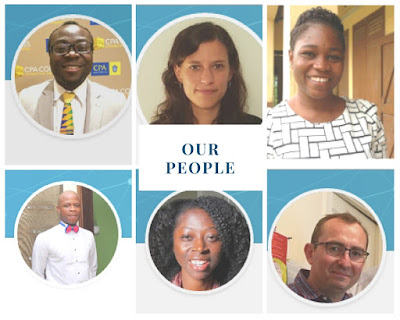Saying NO to Single-Use Plastic
In the early hours of the day, when the compound has been swept, the face and body washed, and the pearly whites brushed, a long familiar urge can now be addressed.
Breakfast. You walk down the street to the koko seller. Or perhaps for you, it's the Waakye seller. Or yet others, the Gari-and-beans serving is just what you crave.
Then it starts:
You get your Koko/Waakye/Gari-and-beans. The seller places these items in a clear plastic bag. It's so convenient that you think nothing of it.
You came to buy food with your younger brother or sister or friend, so you order some food for them as well. The food seller places these in a separate clear plastic bag. You remember that mother also requested some food, so you order a serving just for her.
The food seller works so efficiently that it's almost mesmerising to watch. She places each of the clear plastic-bound food into it's own perfectly sized black plastic bag.
Then with the intention of making carriage of the food home as easy as possible for her customer, she places all the individually wrapped food into yet another larger plastic bag. Now you can carry all the food orders in one single bag. How convenient. Or at least that's how it appears.
There're at least nine pieces of individual plastic bags used in a breakfast order for a small household. There're 1000s of Ghanaians going through this exact food-in-plastic-bag routine today, tomorrow and (Mashalla, God willing) the many mornings to come.
Each bag of plastic could take up to one thousand (1000) years to decompose. The least offending plastic takes up to 10 years to decompose, while plastic bottles take around 450 years to disappear from the environment. Is it any wonder then, that the streets and gutters and land, are haphazardly covered with these yet to be decomposed 'convenient' shopping aides?
Image credit: Muntaka Chasant
When we know better, we do better. And we need your help.
Please share your tips on how you reduce single-use plastic consumption.
Here's how to enter:
Kindly share your plastic-avoidance moments by tagging us on Facebook (Edu Afrique), Twitter (@EduAfrique), email us (eduafrique2012@gmail.com) or Whatsapp us (+61 438 536 933).
Together, for a cleaner Ghana 🇬🇭
Video for the competition: <a>https://youtu.be/nzfnyYBXXn8</a>






Comments
Post a Comment